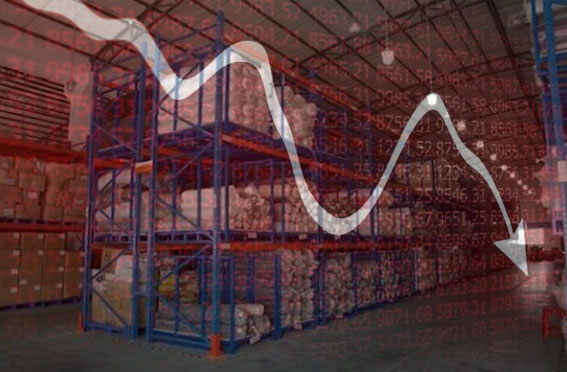APTMA warns of Export Scheme misuse hurting local yarn industry

MG News | December 09, 2024 at 03:21 PM GMT+05:00
December 09, 2024 (MLN): The All Pakistan Textile Mills Association (APTMA), Southern Region, has raised alarms over substantial losses and widespread unemployment in the textile sector, citing misuse of the Export Facilitation Scheme.
This scheme, which provides exemptions from sales tax and duties on the import of cotton and blended yarns, has reportedly been exploited to flood the domestic market.
In its latest statement issued today, APTMA disclosed that while the scheme is intended to bolster textile exports, a significant portion of imported yarn is being diverted to the local market.
This has severely impacted domestic yarn manufacturers, leading to financial losses, factory closures, and the displacement of hundreds of thousands of workers.
It is important to note that combined imports of both yarn types have surged, crossing 25 million kg in November 2024 — the highest recorded in this period.
At the same time, domestic yarn production has seen a sharp decline from 110 million kg in late 2023 to just 70 million kg by June 2024, largely due to the surge in imported yarn under the Export Facilitation Scheme.
"While we appreciate genuine exporters, unscrupulous elements are misusing this scheme to evade sales tax and customs duties, thus causing loss of Millions of Rupees of government revenues and also crippling the domestic industry", the statement reads.
APTMA has raised this issue at all levels of the government and called for an immediate review of the scheme and create a level playing field.
"Unfortunately, our pleas have remained without any tangible action and the domestic industry continues to close down," it added.
The withdrawal of zero-rating on local supplies for export manufacturing under the Finance Act 2024 was posed as a revenue-enhancing measure; rather, it is having the opposite impact by forcing a decline in business activity and thus the government’s revenue collection.
Coupled with high energy prices, the textile industry, especially the spinning sector is facing insurmountable problems.
Local manufacturers, who previously supplied to exporters, are now rapidly shutting down as exporters are purchasing duty-free and sales-tax-free inputs from abroad over domestically manufactured ones that are subject to an 18% sales tax.
While the sales tax is, in principle, refundable, the FBR continues to delay sales tax refunds to exporters, which entails an opportunity cost of at least 20% per annum.
Imports of yarn and other inputs imported under EFS are also increasingly and illegally flooding the domestic market to the detriment of the local industry.
This yarn, imported duty-free and sales-tax-free, is being sold in the domestic market at rates that the domestic industry cannot compete with due to higher production costs, which in and of themselves are a result of callous policymaking that have caused energy prices to skyrocket, and domestic cotton production to plummet.
Over 40% of spinning mills have been forced to shut down.
"If the government does not immediately address the destructive impact of the withdrawal of the sales tax exemption on local supplies for export manufacturing on the domestic industry, it is only a matter of time before this spills over to other sectors such as weaving and processing, and the entire upstream textile industry is industrialized," the association warned.
Pakistan was once home to a full textile and apparel value chain, a rare asset in the global market. Apart from India and China, no other country has this capability.
But it’s better to speak of this in the past tense because these sectors are now on life support thanks to blundersome policies.
It needs no reminding that Pakistan’s external liabilities over the next five years are in excess of $100 bn and the country is in desperate need of increasing exports and domestic value addition in exports to meet its external obligations in a sustainable manner and without taking on more expensive debt.
"At this time, we cannot afford to lose one of the most valuable links of the textile and apparel value chain," it further noted.
The association urged the government to strengthen checks and balances on firms misusing the EFS to protect Pakistan’s domestic industry and implement credible penalties for those facilitating and engaging in fraudulent activities.
Moreover, a rigorous reappraisal of all EFS holders should be conducted for improved transparency and accountability, and EFS licenses should be limited to only those firms that are engaged in manufacturing.
APTMA also urged the government to immediately restore EFS to its pre-Finance Act 2024 form, including the sales tax exemption/zero-rating on all local supplies used for export manufacturing.
Copyright Mettis Link News
Related News
| Name | Price/Vol | %Chg/NChg |
|---|---|---|
| KSE100 | 135,939.87 307.74M |
-0.41% -562.67 |
| ALLSHR | 84,600.38 877.08M |
-0.56% -479.52 |
| KSE30 | 41,373.68 101.15M |
-0.43% -178.94 |
| KMI30 | 191,069.98 82.45M |
-1.17% -2260.79 |
| KMIALLSHR | 55,738.07 422.01M |
-1.03% -577.24 |
| BKTi | 38,489.75 45.79M |
-0.02% -8.33 |
| OGTi | 27,788.15 6.87M |
-1.24% -350.24 |
| Symbol | Bid/Ask | High/Low |
|---|
| Name | Last | High/Low | Chg/%Chg |
|---|---|---|---|
| BITCOIN FUTURES | 117,300.00 | 120,695.00 116,090.00 |
-2935.00 -2.44% |
| BRENT CRUDE | 68.72 | 69.41 68.60 |
-0.49 -0.71% |
| RICHARDS BAY COAL MONTHLY | 96.50 | 96.50 96.50 |
0.50 0.52% |
| ROTTERDAM COAL MONTHLY | 104.50 | 104.50 104.25 |
-2.05 -1.92% |
| USD RBD PALM OLEIN | 998.50 | 998.50 998.50 |
0.00 0.00% |
| CRUDE OIL - WTI | 66.51 | 67.13 66.22 |
-0.47 -0.70% |
| SUGAR #11 WORLD | 16.56 | 16.61 16.25 |
0.26 1.60% |
Chart of the Day
Latest News
Top 5 things to watch in this week
Pakistan Stock Movers
| Name | Last | Chg/%Chg |
|---|
| Name | Last | Chg/%Chg |
|---|





